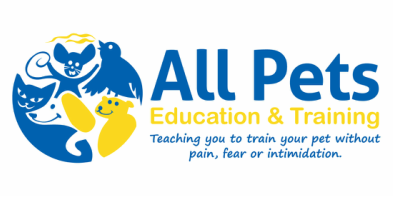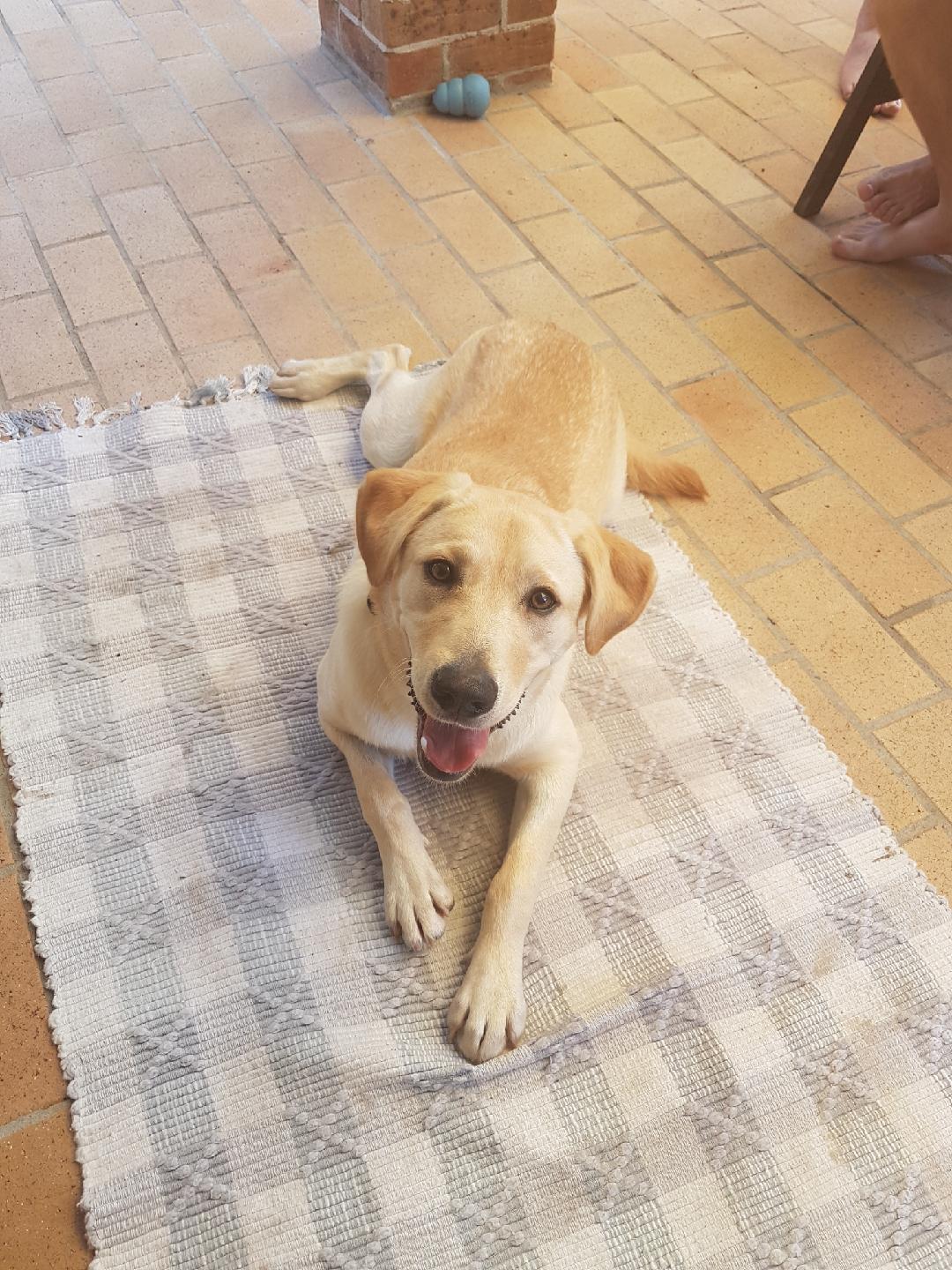Adolescence
The time of sexual maturity and puppy licence expiration.
What does this mean for you and your dog?
Adolescence in dogs is a common time for relinquishment or euthanasia. It is the time that your once sweet cuddly puppy suddenly has a mind of his or her own. He or she back chats, ignores requests, runs away or escapes, pulls on leash, is inappropriate during greetings with humans and, can be destructive and vocal.
This usually comes just after you thought your puppy training skills were A+ and you had your beast tamed….wrong! Don’t worry it happens to all of us, and take some solace that this stage is only temporary.
So when does this occur?
Adolescence occurs when a dog (or cat) reaches sexual maturity just like a human teen.
The age of onset can vary a bit depending on breed, however commonly raises its ugly head around the ages of 8-10 months but, can begin anywhere between 5 and 14 months. It ends somewhere between 2-3 years when the dog reaches social maturity – but don’t worry it won’t be 2 years of hell. With rules, fairness, guidance and consistency you will gain some calmness again.
During adolescence your dog will often be difficult to control. They are large or fully grown and still display puppy like behaviours which are often not so cute or desirable when your dog has a bit of weight behind it.
During adolescence you will find that your dog may be less accepting of unfamiliar animals and it can be when reactivity etc begins.
The puppy licence that your dog had also expires, and you will find that adult dogs that have reached social maturity (2-3 years +) will be less tolerant of social interactions with your dog. Often this presents itself at the dog park, when you find that your dog that previously could get away with harassing the other more mature dogs, suddenly is pinned or growled at by a more senior dog. This can come as a great shock to your dog, however, ideally, you should be managing your dog and his or her play and ensuring that you teach him or her appropriate play behaviours (more on that another day). If your dog is pestering another dog, go in and remove him/her from the situation, and give him/her another task to do. If this doesn’t work, leave the park.
What might you notice?
This usually comes just after you thought your puppy training skills were A+ and you had your beast tamed….wrong! Don’t worry it happens to all of us, and take some solace that this stage is only temporary.
So when does this occur?
Adolescence occurs when a dog (or cat) reaches sexual maturity just like a human teen.
The age of onset can vary a bit depending on breed, however commonly raises its ugly head around the ages of 8-10 months but, can begin anywhere between 5 and 14 months. It ends somewhere between 2-3 years when the dog reaches social maturity – but don’t worry it won’t be 2 years of hell. With rules, fairness, guidance and consistency you will gain some calmness again.
During adolescence your dog will often be difficult to control. They are large or fully grown and still display puppy like behaviours which are often not so cute or desirable when your dog has a bit of weight behind it.
During adolescence you will find that your dog may be less accepting of unfamiliar animals and it can be when reactivity etc begins.
The puppy licence that your dog had also expires, and you will find that adult dogs that have reached social maturity (2-3 years +) will be less tolerant of social interactions with your dog. Often this presents itself at the dog park, when you find that your dog that previously could get away with harassing the other more mature dogs, suddenly is pinned or growled at by a more senior dog. This can come as a great shock to your dog, however, ideally, you should be managing your dog and his or her play and ensuring that you teach him or her appropriate play behaviours (more on that another day). If your dog is pestering another dog, go in and remove him/her from the situation, and give him/her another task to do. If this doesn’t work, leave the park.
What might you notice?
- Mounting of objects, people and dogs (girls and boys both will do the mounting)
- Puppy licence expiration (being told off by the other mature dogs)
- Ignoring you
- Squaring up to other dogs (hormones hormones hormones)
- Leg lifting (marking) when urinating
- Jumping up
- Fear associated with the second and third fear periods
Desexing of your dog may help, however it will not remove all undesirable behaviours, but can help reduce frustration and aggression. Talk to your veterinarian regarding this, and the best age for desexing for your dog (taking in to account sex and breed).
Remember mounting etc isn’t only a sexual behaviour. It can be done to relieve stress, to start play, it feels good etc. Interrupt your dog for this behaviour, or redirect them before they start and encourage them to do something more appropriate.
What can you do?
Have rules and provide consistency. These are important.
Don’t fight your dog, there is no need for physical or verbal punishments etc and these can escalate the problems. Your dog is not trying to dominate you. Please don’t listen to anyone that says he or she is.
Teach impulse control behaviours - ask for the handout if you are interested in some of these.
Teach a settle on a mat or station – having a place you can send your dog to chill for a moment, when guests arrive, during dinner, while you are watching TV etc, can be incredibly useful.
Capture calmness – Emily’s video on kikopup demonstrates this brilliantly.
Remember mounting etc isn’t only a sexual behaviour. It can be done to relieve stress, to start play, it feels good etc. Interrupt your dog for this behaviour, or redirect them before they start and encourage them to do something more appropriate.
What can you do?
Have rules and provide consistency. These are important.
Don’t fight your dog, there is no need for physical or verbal punishments etc and these can escalate the problems. Your dog is not trying to dominate you. Please don’t listen to anyone that says he or she is.
Teach impulse control behaviours - ask for the handout if you are interested in some of these.
Teach a settle on a mat or station – having a place you can send your dog to chill for a moment, when guests arrive, during dinner, while you are watching TV etc, can be incredibly useful.
Capture calmness – Emily’s video on kikopup demonstrates this brilliantly.
Teach basic cues
- LEAVE is especially helpful
- SIT (you aren’t jumping if you are sitting)
- FOCUS/EYE CONTACT
- COME – praise and a pat is unlikely to be enough of a reinforcer for this – don’t be stingy and make sure you use good rewards for this – especially if you are out of your dog’s home environment and facing distractions etc. Another note for COME, is you take your dog to beaches/off leash areas – don’t only call your dog when it’s time to leave. He or she will learn pretty quick that COME now means game over, and is unlikely to choose to come to you. And when your dog is slow to return, still pay them, and don’t scold etc, as this is just another reason not to come to you next time. If in doubt, use a long leash, and wait until you have their attention before calling them. Set the dog and yourself up for success. It often helps if you have reliable dogs with you as well. Perhaps organise a walk with friends.
- LOOSE LEASH WALKING – this one can be tricky, but it doesn’t need to be. If your dog pulls, stop, and don’t move. Moving ahead will just reinforce the pulling. Reinforce often, especially around distractions etc, for the loose leash. Talk to your dog and engage them with you.
Continue attending training classes, or making a concerted effort to continue your pups training on your own. The second you slack off, the second your dog will take advantage of this.
Monitor for Fear Periods and be conscious to protect your dog during these times. Ensure that they experience a lot of positives during this time and don’t be afraid to use plenty of high value but low fat foods. The Fear Periods can be more pronounced in herding breeds.
Continue controlled socialisation. Parallel walks, and appropriate play etc can benefit your dog greatly. Not every dog needs to or should go to the dog park.
You need to feed your dog, so you have plenty of opportunity for reinforcement (Don’t just feed from a bowl once or twice daily). Use your dog’s food daily in training tasks and reinforcing the desired behaviours.
Use enrichment toys that get your dog to work their brain and body to get their food. This extra stimulation will help tire them out more than physical stimulation. 20 minutes of puzzle toys is worth 60 minutes of physical exercise.
Take heart that this is a stage, and it is only temporary. Stand by your dog. We know it may be challenging for you both at times. Focus on building your bond, and remember consistency is important.
Becker, M., 2018. Free Free Animal Trainer Certification Program.
Eaton, B., 2010. Dominance in dogs. 1st ed. Wenatchee, Wash.: Dogwise Pub
Overall, K., 2013. Manual of clinical behavioral medicine for dogs and cats. 1st ed. St. Louis, MO
Elsevier.Whitehead, S., 2010. Adolescent dog survival guide. Washington. Dogwise Publishing
Monitor for Fear Periods and be conscious to protect your dog during these times. Ensure that they experience a lot of positives during this time and don’t be afraid to use plenty of high value but low fat foods. The Fear Periods can be more pronounced in herding breeds.
Continue controlled socialisation. Parallel walks, and appropriate play etc can benefit your dog greatly. Not every dog needs to or should go to the dog park.
You need to feed your dog, so you have plenty of opportunity for reinforcement (Don’t just feed from a bowl once or twice daily). Use your dog’s food daily in training tasks and reinforcing the desired behaviours.
Use enrichment toys that get your dog to work their brain and body to get their food. This extra stimulation will help tire them out more than physical stimulation. 20 minutes of puzzle toys is worth 60 minutes of physical exercise.
Take heart that this is a stage, and it is only temporary. Stand by your dog. We know it may be challenging for you both at times. Focus on building your bond, and remember consistency is important.
Becker, M., 2018. Free Free Animal Trainer Certification Program.
Eaton, B., 2010. Dominance in dogs. 1st ed. Wenatchee, Wash.: Dogwise Pub
Overall, K., 2013. Manual of clinical behavioral medicine for dogs and cats. 1st ed. St. Louis, MO
Elsevier.Whitehead, S., 2010. Adolescent dog survival guide. Washington. Dogwise Publishing

